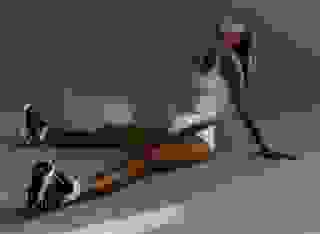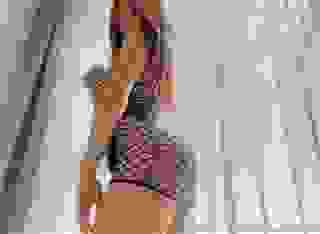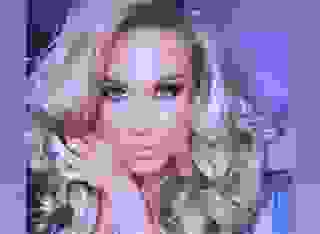Note: You can change font size, font face, and turn on dark mode by clicking the "A" icon tab in the Story Info Box.
You can temporarily switch back to a Classic Literotica® experience during our ongoing public Beta testing. Please consider leaving feedback on issues you experience or suggest improvements.
Click hereAfter a discussion, we decided that because the drones could evade Rom's eye, it took too much of a chance leaving the drones an opportunity to return to the Aggregate. Rom monitored the city, and the areas left unscanned. The instant we spotted them at daybreak, two teams wearing flight packs would net them, and then bring them to the industrial area away from the city.
From the time the invasion began with the five Americans, we spent more than a day on Earth before returning home, and due to the time differential, five or six days had passed on Jiyū, plus the many hours after having returned home. At least one soldier survived, and they had plenty of time to act. Still, five or six days, assuming they didn't send the drones out upon arrival, and depending on how fast they could fly, it might mean we would find the other portal closer than we realized.
We had a long, eventful day, and we hadn't had slept for well over 28 hours. We stayed at Laurel's lab for another two hours when I almost fell asleep standing up. It served as a notice to end the evening and go to bed. Before Venn drove us home, Gabe told us that he would ensure the capture of the drones, so we could get some rest and not worry about it.
My memory grew more sporadic for the remainder of the evening. I must assume I slept most of the ride home. I recall my head resting on David's shoulder, and he told me later he carried me into the penthouse, putting me to bed. I remember saying goodnight to Mason, and the next thing I knew morning had arrived.
I felt better, but I hadn't slept enough. The sun had shown in the sky, and my stomach rumbled. David lay sleeping beside me. I looked him in the face. I smiled to see his tousled hair resting adorably across his brow. I attempted not to awaken him as I left the bed. After a quick trip to the loo for the necessities, I crept from the bedroom to find Mason --as I had dubbed him-- setting out breakfast for me.
I gasped in shock when he turned to greet me. "Where did you get that face?" I asked.
He looked human, realistically so for a hologram. He projected wearing a stylish grey suit with tie, which I suspect he chose from one of the many periodicals sent to Jiyū over the jears from Earth. He had hands that looked human in appearance, and his skin had a lovely tone. His face, however, looked odd. His fine, light blonde hair looked like it belonged to a baby. His eyes seemed far too big for a nose so small it appeared to belong to a little boy. He had no chin to speak of. His face looked like the image in a funhouse's distorting mirror.
"It's part of my holographic interface," he said. "I cobbled it together from various random male images in Jiyū's database."
"I see that." I sat down, trying not to look him in the eye. "Thank you for breakfast, Mason. So, tell me, did you have the goal to create a visage worthy of Picasso?"
Mason stared at me with what I took as a quizzical expression.
"I find this idea of yours an interesting one," I said, "but why don't you select the facial features with intention rather than at random?"
He tilted his head as he does when he's perplexed, which distorted his appearance further. I had to look away before I laughed.
"What intention should I have?"
"Well, one presumes the intention of appearing natural," I said, "and perhaps pleasant to see or even handsome."
"I would require an external judgment of natural, pleasant, or handsome. I have no sense of aesthetic beauty. Perhaps, you could help me."
"That would prove awkward," I said between bites. "Not that I couldn't do it, but it's not how things go. If I'm right, it's your job as a person to present an appearance that seems natural so that we'll accept it as a given that you're like any other individual. If I help you decide what to look like, it will hamper my ability to accept it. I'll try to perfect your appearance, and I suspect it would result in your looking as if you'd had extensive plastic surgery. Everyone has, at least, some minor level of realistic flaws that show. So, I'm not suggesting you must appear perfect or drop-dead gorgeous, but any sober individual who can alter their appearance shouldn't find satisfaction with features that look --and please forgive me for saying so-- but comical and creepy."
A booming voice emanated from the direction of the bedroom. "What the bloody hell have you done to your face?"
David stood in the doorway.
"It's okay, David," I said. "Mason's just having a little façade trouble. We've already discussed it. Mason, why don't you go work extra hard on that. You must have someone from whom you could get advice. I'll take care of breakfast for David."
Once Mason left, David, shirtless and wearing a pair of pull-on pants, kissed me good morning and sat down.
I began filling his plate with food. "So, what have we on the agenda today?" I asked.
"We should inquire about the success of the drone capture and visit Pearce's mother. Beyond that, I'm uncertain, but I have something I wish to discuss with you."
"Oh? I wanted to discuss something with you as well but do go on. What's on your mind?"
I stared into his face, and his alluring amber eyes showed I held his full attention.
"As you know, because of the drones, things have changed," he said.
"Yes." I nodded.
"I've given it some thought," he said, "and I don't think the Americans want to invade. That's perhaps one of their long-term goals if it becomes viable, but they can't for now."
"What do they want?"
"The drones tell us. They want reconnaissance. They send five soldiers through the portal with six containers, and Major Palmer said they would send more the next day. That's maybe six days here. So, they don't expect to need many supplies but would need some. We have two drones flying about-"
"What about the stones on the portal here? Shouldn't that have damaged things?"
"I've reconsidered that," said David. "Our assumption seemed reasonable to think that the soldiers got crushed upon arrival, but what if that hadn't happened? At least one of them has survived. What if the transfer of the stones to Earth uncovered the entire portal? It may have lain closer to the surface than we realized?"
"Yes, I see. That would change things. But no one performs reconnaissance with a drone as a vicarious form of tourism."
"No," he said, "I was getting to that. If they want to remain dominant on Earth and invade us one day, they will need our technology."
"So, they wish to pilfer like common thieves."
"I think they would refer to it as appropriating enemy resources."
"Hmm," I said, "so, what's the plan?"
"The plan, yes. It keeps having to adapt. For now --on the defensive-- an abundance of damage control." He closed his eyes and shook his head. "We have so much to do, and I still must return to Earth to keep my promise. You had something to tell me?"
"I know I have bad timing, but I want to join the Trust."
He dropped an "A-ha" as a passive remark. "What made you consider that?"
"Jiyū is my home now. I want to defend it, as well as myself."
"An idea just crossed my mind again," he said. "I dismissed it before because I didn't think you would agree, but it would help to make use of our time more efficient and get us back to some semblance of normality faster."
My eyes narrowed. "More efficient use of our time... You'll suggest going to Earth without me."
"I haven't made any immediate plans to do so," he said. "However, you've had considerable reservations about returning, and now you bring up joining the Trust, but something more important, you promised to translate the ancient texts. They could prove useful in our current circumstances. For as much as I want us to stick together, dividing and conquering would require less time."
I shook my head. "I don't know...," I said. "Wouldn't it disrupt our connection to separate us?"
"Do you think our connection drives your feelings for me?" he asked.
"No, of course not."
"You're ready to branch out, Rick. You don't need me to hold your hand every instant. Believe in yourself."
"When will you need to leave?" I asked.
"Probably, when our situation settles a bit, and I will arrange a means for you to reach me should you need to come to Earth."
"Earth is dangerous," I said. "What if something should happen to you?"
He put his hand on mine. "I cannot make any guarantees about me, and neither could you of yourself."
I didn't know if I felt ready for our first time apart, but I didn't see any alternative. I couldn't argue against David's logic. For my betterment, I needed to continue to grow and complete the undone thing in the back of my mind. The more danger hovered around us, the more that undone thing nagged me.
CHAPTER THIRTY
Jiyū's years --known as a jear-- began at the cross-quarter, the first actual day of spring for what we considered the Northern Hemisphere. Over half the jear had gone, as of that 279th day, and while the seasons lasted 103 days, summer had started 73 days earlier, just after we left for the mission on Earth. Despite the subtle difference in temperature from season to season, the day felt muggy for One City, and the forecast expected the temperature to climb to an unbearable degree. David wore his uncomfortable Trust uniform --something I expected he would regret-- and I wore my pants from the mission with a white short-sleeve pullover. We needed to find time to acquire more suitable clothing for the weather. All the clothing we purchased on Earth would not maintain its own cleanliness.
On our second day back, Maggie and Rocke would leave the containment area. Rocke would stay at the home of Cadmar and Tamika; Maggie would come to the penthouse with Aiden. With our busy lives, I would have difficulty making time for Maggie.
David and I both contacted Iris as we exited our building. David wanted to know the status of the drones from Gabe, and I needed to know where Pearce's mother lived. I learned she moved to her then, current home at One City Square when Pearce left for Earth.
David's communication with Gabe resulted in disturbing news; one of the drones had disappeared, but they managed to net the other one. The volatility of its power source remained unknown, so they took it to the edge of the industrial area for safety. Many of us would meet later to investigate it further.
On my previous visit to Jiyū, many nuances to living there had escaped my attention. For example, no postal system existed on Jiyū, but it had an address system of a sort. They plotted the entire planet by the spherical polar coordinate system centuries ago. The city, however, they had mapped into various aesthetic-based districts, divided by the train, which lengthwise bisected the city. Our home at 1452.6-West Bragi Avenue made 6-West our closest train station, 6 kilometers west of Central Avenue.
From our building, we walked the few kilometers toward the sea to reach the station, passing every road junction through its pedestrian tunnel --there were no above-ground crosswalks in One City. As David and I chatted, I sensed his impatience to get to the drone, and he had no desire to inform Pearce's mother of her son's traitorous actions, but he promised Amaré.
"So, what can I expect of Pearce's mother?" I asked.
"I can tell you her name is Teresa, but I couldn't say what to expect, fifty jears have passed. However, when I knew her, she always seemed contrary to life here."
"Contrary. In what way?"
"Most ways."
"Here?"
"Yes," said David, comprehending the implications of my question, "and it stuns me that she survives, given the way she treated her body."
"What do you mean? I figured the foundational enhancement would keep someone going for a long time regardless."
"It will," he said, "but she refused to get the Forever Young enhancement, and the effects of aging relate to how well you treat your body, epigenetically speaking."
After everything I had experienced on Jiyū, it shocked me to hear it, but it piqued my curiosity. "What made her contrary?"
"She had a host of deplorable habits and borderline agoraphobia. She never involved herself with the community any more than necessary, or with anyone, after John died."
"Who was John?"
"Well, mind you, I never met him," said David. "I heard he died on Earth before I met Pearce in school. He served as our envoy to the United States, and I understood he brought Teresa to Jiyū before she had given birth to Pearce. I don't know what caused him to think she made a suitable candidate for life here. She always seemed miserable."
"Should I assume John was Pearce's father?" I asked.
"Why not? Pearce did," he said. "People knew John on Earth as John Pearce. Teresa didn't disabuse Pearce of his presumption for many jears, but much later in his twenties, she confessed his father was someone else. On top of everything else she put Pearce through, she had done him an outrageous disservice, and he hated her for it."
"It sounds like it," I said, "talk about cruel."
"That's Teresa."
I didn't know what to think about it all. It felt like gossip, and like David, I'd begun to despise gossip. But, when it came to Pearce, even gossip might prove less impertinent than it seemed on the surface. So, I filed the information away for future reference since the situation with Pearce seemed unsettled.
One City had an orderliness that reflected itself in specific repetitions. For instance, they had designed all the train stations double-sided; one side faced the mountain, the other the sea. Our local station stood in the middle of our Edwardian Baroque district with its dusky-looking, stratified gray stone, overlaid with marble trimmings and accents. When we approached it, the arched and columned entryways caught my eye. A hundred people came and went on the spacious ground floor of Station 6-West, while others ate in the Café or sat waiting in the comfortable seating of the terminal.
Every station had one set of tracks, apart from the Central station, which had two. The second set of tracks served the portion of One City on the opposite side of the mountain, and they had just completed the tunnel for that line.
The shell of the gothic station on Central appeared reminiscent of Ely Cathedral northeast of Cambridge. The tower from it stood as the tallest structure on the seaside of the city.
As we descended the broad, earthen-colored, stone staircase from the platform, we happened upon David's father. His parents lived in the gothic district. We didn't notice him in the crowd until he called David's name. He looked handsome in the geometrically patterned pullover he wore. He greeted us with warm hugs and a friendly demeanor far more becoming than the sour disposition he displayed when we first met.
"I'm sorry we haven't visited, Father," said David.
"I'm in the Trust, too, you know," said Liander. "I know you're busy. Your mother would love to see you. She wants to talk to you both, but that will have to wait.
"I heard they missed one of the drones this morning," he said. "I don't know what we'll do about that."
"Rom has kept watch for it," said David.
"Has it not left the city?"
"Gabe told me Rom had not detected its departure," said David, "and they will alert me the instant anything changes. For now, we're paying a call on Pearce's mother to deliver the news of her son."
Liander stared into David's eyes. He tilted his head, and his face held an expression of having looked upon David for the first time. We blocked the flow of pedestrian traffic on the staircase, so he drew us to the bottom by the lamped newel post.
"I spoke with my friend, Dmitry, last night. He told me how much people respect and trust you, David. He also told me that...talk has happened during your recent absence."
"Talk," David said.
"What sort of talk?" I asked.
Liander leaned forward. "Organizational," he whispered.
"What?" asked David, unable to believe his ears. "Why?"
"After all this time?" I asked. "Do they now believe Jiyū's ship will sink without some, you know, structure to keep it afloat?"
Liander gazed at me in benevolence. "Earth knows we exist, and a faction of the Aggregate plans to attack us in the future. We aren't sinking yet, but changes are coming, and it hasn't gone unnoticed by our people. Passengers have already begun abandoning the ship."
"What do you mean?" asked David.
"Three families packed what they could last night and have gone through the portal this morning. They're seeking asylum in the United Kingdom."
I stood there with my mouth agape.
David closed his eyes and shook his head a little. "They're free to do so, of course."
"Why would they leave?" I asked.
"I figured we would have some fair-weather families," said Liander, "made up of Earth-born parents, and their children. Some people, in their fear, retreat to what they find more familiar and certain. No matter how bad they may have it there, a terrible known often feels more comfortable than the unknown. I predict more families will go."
"They see us as weak," David said to me.
"But we have technology," I said.
"Untried technology," said Liander, "in the hands of people who have seen no battles."
"That doesn't engender confidence," said David.
"That's troubling," I said. "Have we come to the end of Jiyū?"
"Change happens, Rick," said David, "and we will have to adapt. It's not the end, but rather the beginning of something new."
"David, I tell you this because you need to know," his father said, "important people in the community may approach you."
"Do you know what they will ask of me?"
"I think it relates to the organizing, and that worries me too. You can say 'no' to them, David."
David looked at him with a raised eyebrow. "You have never said that before."
Liander gave a little smile. "I said things would be different. I must go; the designers and my fellow engineers at Laren College expect me by nine. Today, we announce the construction of something astounding that Amaré requested."
We said our goodbyes and left for the city square.
"Do you think Amaré will approach you? What do you think they might ask of you?"
"If Amaré does approach me --contrary to what father says-- in good conscience, I doubt I could say no to it."
"What about your return to Earth?"
"They will have to accommodate it," he said. "Whatever they ask, they should know I will not break my promise."
I noticed the cloisters first when we entered the city square. As some of my favorite architectural elements, my eyes gravitated toward them. They made up the first floor of the five-story building, which lay on three sides of the square. I found it disappointing and smaller than Piazza San Marco in Venice. The center of the square held an oil-rubbed bronze, cylindrical bell 6 meters tall and 2 meters in diameter. It sat upon a pointed bronze column, allowing it to vibrate unobstructed. Beside it, they placed a massive, embellished, 1-meter-long bronze striking pole attached to a swing. I noted they made the striking end wooden, lessening the likelihood of damage to the bell.
"So, the pylon stood there," I said as we walked past.
"Yes," said David, "which reminds me. I must take you to the museum today."
The third floor of the south building held Teresa's apartment. Gothic arched, tracery windows faced the square, illuminating the fan-vaulted ceilings in the hallways. When we arrived at her door, we met an acrid, sickening odor permeating the air.
"She's still at it," said David, glancing at me with a curled lip. He knocked, and the door opened, but we kept outside the apartment in the hallway.
Inside, a woman, whose aspect looked every bit of 150 years old, sat ensconced upon a filthy, tufted, fan-backed chair in the living room. A unique specimen, her unimaginably skeletal 5 feet 2 frame juxtaposed against the miracle of her well maintained, shoulder-length hair, adorned by a luxurious sable dye job. She had pallid, almost translucent, crepe-paper-like skin, most noticeable when she held what looked like a homemade clay pipe to her mouth. She inhaled the burning fumes of something that reeked more than a paper mill in midsummer. A yellow day dress hung loosely upon her emaciated frame, styled for a woman a fraction of her age with its low-cut neckline.








